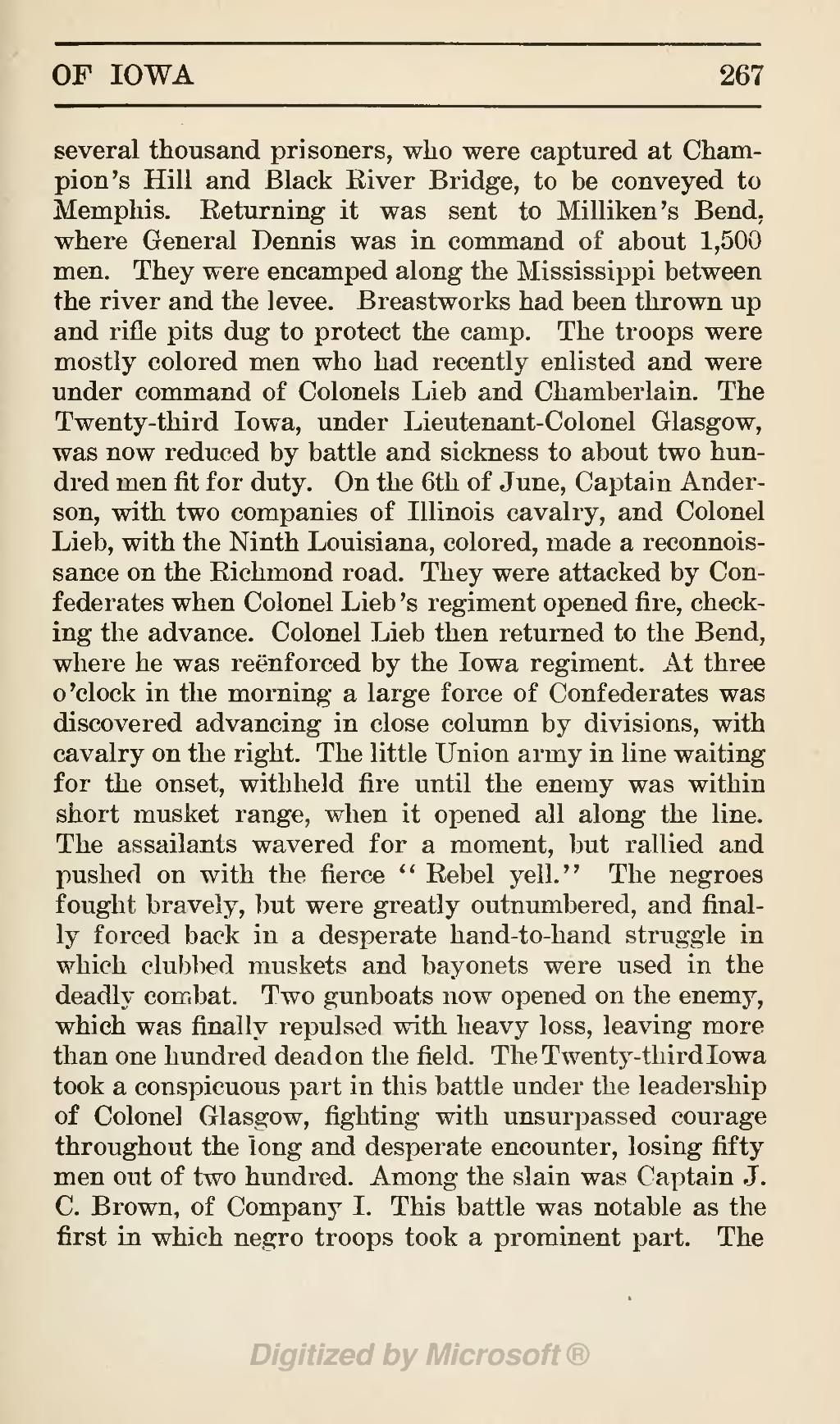several thousand prisoners, who were captured at Champion’s Hill and Black River Bridge, to be conveyed to Memphis. Returning it was sent to Milliken’s Bend, where General Dennis was in command of about 1,500 men. They were encamped along the Mississippi between the river and the levee. Breastworks had been thrown up and rifle pits dug to protect the camp. The troops were mostly colored men who had recently enlisted and were under command of Colonels Lieb and Chamberlain. The Twenty-third Iowa, under Lieutenant-Colonel Glasgow, was now reduced by battle and sickness fit for duty. On the 6th of June, Captain Anderson, with two companies of Illinois cavalry, and Colonel Lieb, with the Ninth Louisiana, colored, made a reconnaissance on the Richmond road. They were attacked by Confederates when Colonel Lieb’s regiment opened fire, checking the advance. Colonel Lieb then returned to the Bend, where he was reënforced by the Iowa regiment. At three o’clock in the morning a large force of Confederates was discovered advancing in close column by divisions, with cavalry on the right. The little Union army in line waiting for the onset, withheld fire until the enemy was within short musket range, when it opened all along the line. The assailants wavered for a moment, but rallied and pushed on with the fierce “Rebel yell.” The negroes fought bravely, but were greatly outnumbered, and finally forced back in a desperate hand-to-hand struggle in which clubbed muskets and bayonets were used in the deadly combat. Two gunboats now opened on the enemy, which was finally repulsed with heavy loss, leaving more than one hundred dead on the field. The Twenty-third Iowa took a conspicuous part in this battle under the leadership of Colonel Glasgow, fighting with unsurpassed courage throughout the long and desperate encounter, losing fifty men out of two hundred. Among the slain was Captain J. C. Brown, of Company I. This battle was notable as the first in which negro troops took a prominent part. The
